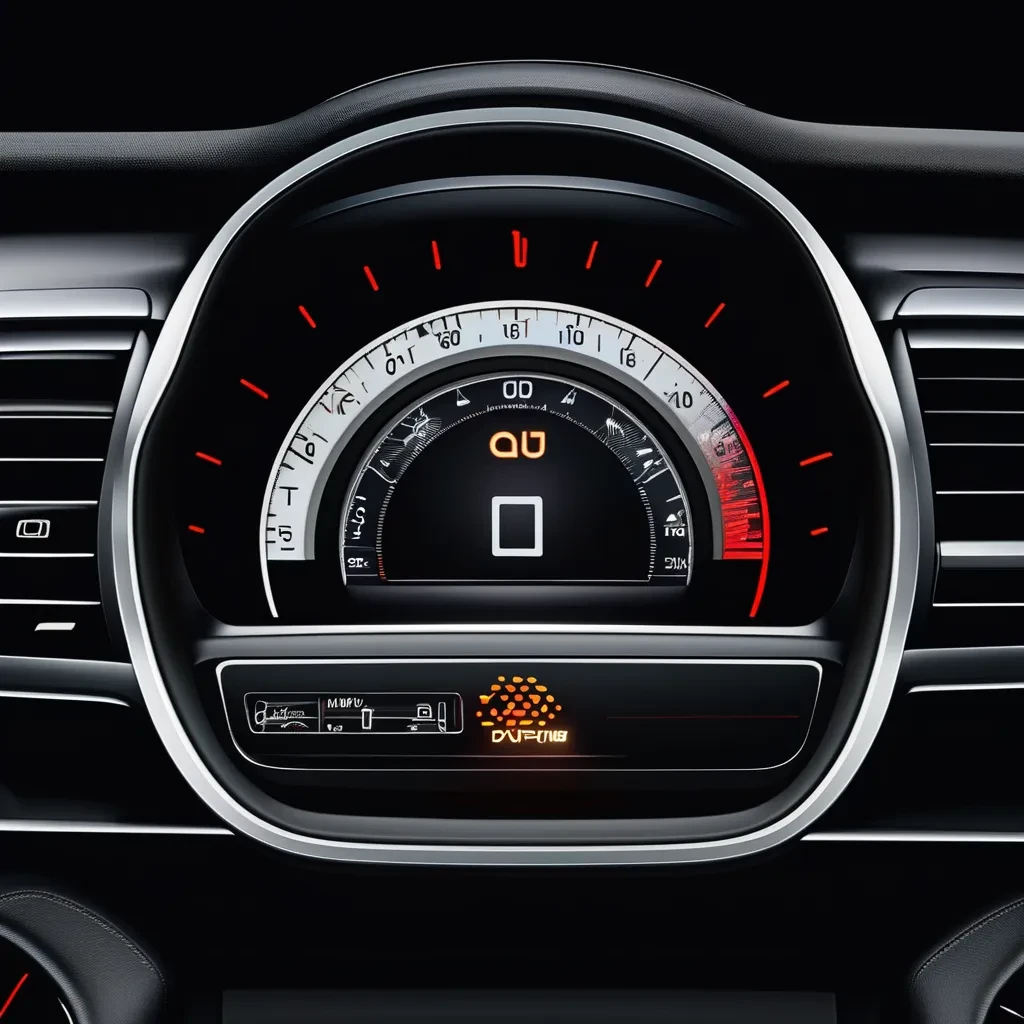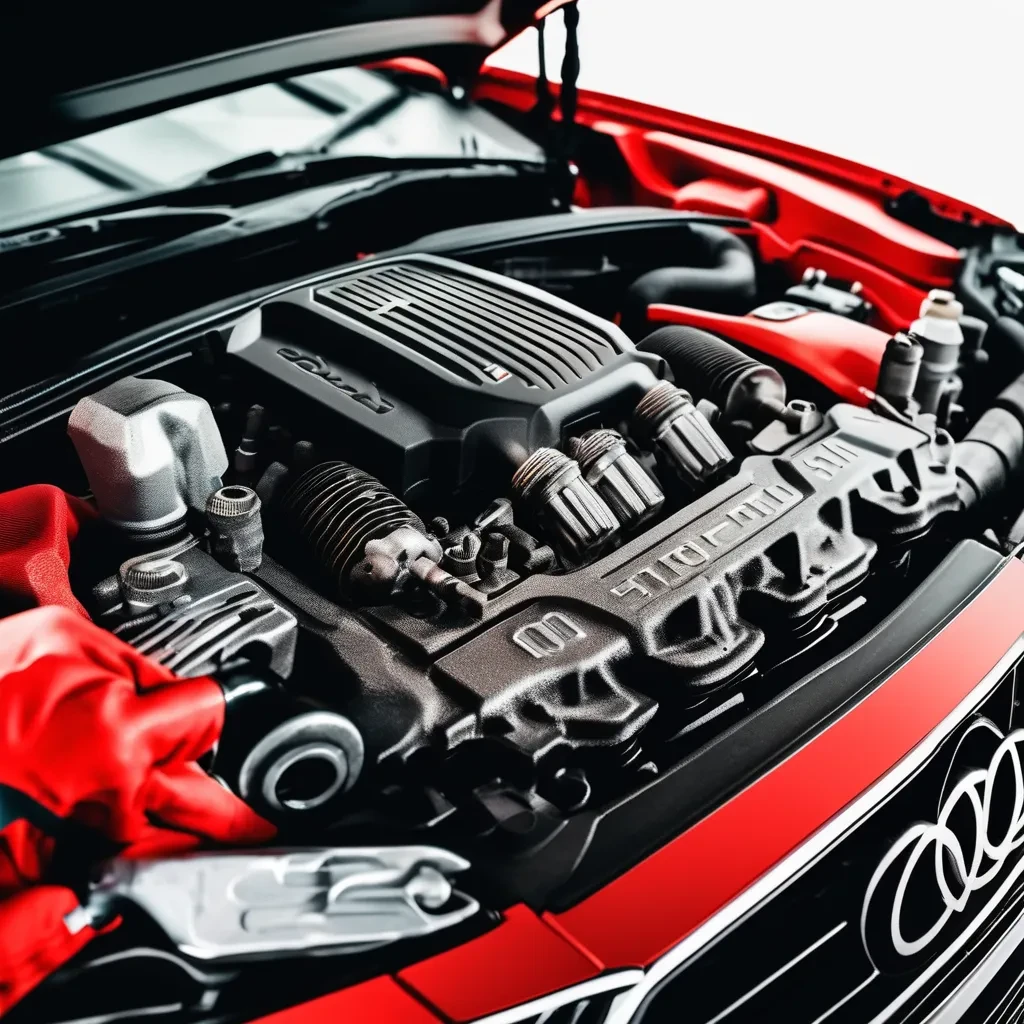Drive System Malfunction Audi: Audi, renowned for its advanced engineering and luxury, has always been at the forefront of automotive innovation. However, like any complex machinery, Audi vehicles can experience technical issues. One such issue that has garnered significant attention is the malfunction of the drive system.
A drive system malfunction in an Audi can cause problems with power delivery to the wheels. Common signs include strange noises, vibrations, and warning lights. Regular maintenance and timely repairs can prevent these issues.

In this comprehensive guide, we delve into the intricacies of this problem, its causes, symptoms, and solutions, ensuring Audi owners can address and mitigate these issues effectively. For more details about Audi, begin your information quest with Carsdensity.
Table of Contents:
What is Drive System Failure?
A drive system failure refers to a notification message in the heads-up display, indicating an issue within the engine. An engine misfire typically causes this message, but other factors may also trigger it.
To understand drive system failure, it is important to know about engine misfires. An engine misfire happens when one or more engine cylinders malfunction. In severe cases, the engine shakes, and this instability is detected by the car’s sensors, causing the drive system failure message to appear.
What To Try First?
When the drive system failure message appears, it indicates engine instability. The first step is to pull over and stop the car to ensure safety. Sometimes, an issue like a kink in the timing chain or a bump in the road can cause an engine to misfire. In such cases, simply stopping and restarting the car might reset the electronics and clear the error message.
If the message persists, it suggests a permanent issue causing the engine to misfire, or it could be an electronics error falsely detecting a misfire. To be safe, it’s crucial to address the potential engine misfire to ensure everyone’s safety on the road.
Read Also: Drive System Fault Audi – A Comprehensive Visual Guide!
Fixing Engine Misfires
Engine misfires can result from several issues, with common causes including a faulty timing chain, a broken spark plug, or a leak. The engine needs three things to function properly: adequate fuel, sufficient oxygen for combustion, and a spark to ignite the mixture. Ensuring these elements are working together is vital.
Insufficient fuel and oxygen supplies often result from a leak or clogged valve. The only solution is to replace the system. Leaks occur due to long-term corrosion, while clogs result from fuel byproducts like sludge. Both issues are natural effects of driving, so periodic replacement of these parts is necessary.

A faulty timing chain disrupts the synchronization between the opening and closing of engine valves, leading to suboptimal fuel intake and exhaust output. This results in wasted fuel and reduced acceleration, and severe cases, the car can stall and shut down. Malfunctioning timing chains are difficult to repair and usually need to be replaced.
The Solution
A drive system failure in an Audi is not a major concern. Often, a simple shutdown and restart can resolve the issue. If the problem persists, visiting a car shop for professional help is recommended.
The repair is straightforward and can be quickly handled by experts. For reliable and hassle-free service, visit Das European Autohaus near Spring and Houston, TX, and get your drive system back in perfect condition.
Read Also: Audi Bluetooth Function is Currently Unavailable – Discuss with us!
Explanations for the Audi Q7 drive system’s malfunction
Owning an Audi combines style and high-quality engineering. Despite its advanced technology, the drive system can sometimes have issues. When a problem occurs, drivers receive a dashboard message to seek service.
1. Drive System Malfunctions:
Advanced technology can sometimes malfunction even without a real issue. If you see a “Drive System Malfunction!” warning, try restarting your car. If the warning stays, there might be a real problem.
2. Timing Chain Issues:
The timing chain helps control engine valves. If it malfunctions, you might hear engine rattles or have trouble starting the engine. Repairs can be expensive and may cause engine misfires.
3. Control Module Problems:
The control module manages the suspension system. If it fails, related parts like the actuator might also fail. A simple reset by turning the ignition off and on might fix it.
4. Outdated Software:
Using old software can cause system problems. Regular updates are essential. While cars often alert drivers about updates, checking with an Audi specialist ensures you have the latest version.
5. Acceleration Issues:
Pressing the accelerator too hard can trigger false drive system malfunction warnings. Gentle acceleration can help prevent these false alerts.
6. Engine Misfires:
Occasional engine misfires are normal, but frequent misfires could signal a problem. If the drive system malfunction warning continues, see a mechanic to check for issues.
7. Steering Angle Sensor Problems:
The steering angle sensor helps align the tires with the steering wheel. If it malfunctions, you might notice delayed tire responses or a misaligned steering wheel. Usually, a simple calibration can fix it.
Read Also: Audi q7 years to avoid – Don’t take risks!
Repairing Engine Misfires – Stay Informed!
Essential Engine Functions:
For an engine to work effectively, three critical conditions must be met:
- Adequate fuel supply
- Sufficient oxygen for combustion
- A spark to initiate the combustion process

Common Causes of Misfires:
Engine misfires can result from various issues, such as a malfunctioning timing chain, a worn-out spark plug, or leaks within the system. Each component plays a crucial role in the engine’s smooth operation.
What is the primary cause of engine misfires in an Audi?
- Faulty air conditioning
- Fuel and oxygen deficiencies
- Worn-out tires
Addressing Fuel and Oxygen Deficiencies:
Leaks or clogged valves can disrupt the fuel and oxygen balance necessary for combustion. These problems usually require system replacements and are often a natural outcome of prolonged vehicle use, needing periodic maintenance.
The Impact of a Faulty Timing Chain:
A malfunctioning timing chain disrupts the coordination between the engine valves’ opening and closing. This misalignment can lead to inefficient fuel intake and exhaust processes. These inefficiencies waste fuel and reduce the vehicle’s acceleration.
In extreme cases, a compromised timing chain can cause the vehicle to stall unexpectedly, posing safety risks. Due to the complexity of timing chain repairs, replacement is often recommended.
Read Also: Drive System Malfunction Audi Q7 – Let’s Explore!
Symptoms of Drive System Malfunction in Audi
- Warning Notifications:
A key sign of a drive system issue is a dashboard message or warning light specifically indicating a problem with the drive system.
- Performance Issues:
The vehicle might show reduced acceleration, lower fuel efficiency, or unusual engine noises.
- Handling Problems:
You may experience steering irregularities or vibrations, especially during acceleration or at high speeds.
- Fluid Leaks:
Visible leaks under the vehicle or a noticeable drop in fluid levels could indicate drive system issues.
- Unusual Odors:
A burnt smell or other unusual odors, particularly after driving, might suggest overheating or stress on the system.
If you notice any of these symptoms, it’s important to consult a certified Audi technician for a thorough diagnosis and appropriate action.

Read Also: Audi A4 Rattle When Accelerating – Causes, Diagnosis, and Solutions!
What is the Malfunction Indicator Lamp on the Audi?
The malfunction indicator lamp (MIL) is part of the onboard diagnostic system (OBD II). It illuminates when the ignition is turned on and should turn off once the engine starts and is running steadily at idle.
Read Also: Do Audi Dealers Negotiate? – A Complete Visual Guide!
Can You Still Drive with the Malfunction Indicator Light On?
Driving with the check engine light on can lead to significant damage and more expensive repairs. It often results in reduced fuel efficiency and vehicle performance. It is important to take your car to a qualified service center as soon as possible for necessary repairs or maintenance.

Frequently Asked Questions:
Can I drive my Audi with the drive system malfunction light on?
Driving with the drive system malfunction light on is not recommended as it can lead to further damage and costly repairs. It’s important to have your vehicle checked by a professional as soon as possible to avoid potential safety risks.
How serious is a drive system malfunction in an Audi?
The seriousness of a drive system malfunction can vary. While some issues may be minor and easily fixed, others can lead to significant damage if not addressed promptly. Regular maintenance and timely repairs are crucial to keeping your Audi running smoothly.
How often should I have my Audi’s driving system checked?
Regular maintenance checks are recommended to ensure the drive system remains in good condition. It’s advisable to follow your Audi’s service schedule and have your driver system inspected during routine maintenance to prevent issues before they arise.
Is it safe to drive my Audi with a drive system malfunction warning?
It is generally not safe to drive with a drive system malfunction warning. The severity of the issue can vary, but driving with such a warning can lead to further damage and potentially unsafe driving conditions. Seek professional help immediately.
How much does it cost to fix a drive system malfunction in an Audi?
The cost of repairing a drive system malfunction can vary widely depending on the specific issue. Minor sensor repairs may cost a few hundred dollars, while major transmission or drivetrain repairs can run into thousands of dollars. Always get a detailed estimate from a certified mechanic.
Can I use a generic OBD-II scanner to diagnose a drive system malfunction in my Audi?
A generic OBD-II scanner can read basic error codes, but it might not capture all the specifics of an Audi’s drive system. For comprehensive diagnostics, it’s best to use a specialized scanner or have the vehicle checked by an Audi-certified technician.
What role do sensors play in Audi’s drive system?
Sensors monitor various aspects of the drive system, such as transmission fluid levels, temperature, and the position of various components. They send this data to the vehicle’s control unit, which helps maintain optimal performance and detect issues early.
How often should I have my Audi’s drive system inspected?
It’s recommended to have your Audi’s drive system inspected during regular service intervals, typically every 10,000 to 15,000 miles, or as specified in your owner’s manual.
Can weather conditions affect my Audi’s drive system?
Extreme weather conditions, such as very cold or hot temperatures, can impact the performance of your Audi’s drive system. Cold weather can thicken fluids, while heat can cause overheating, both of which can lead to malfunctions if not properly managed.
Conclusion:
At the end of the conclusion,
A drive system malfunction in an Audi can disrupt power transmission to the wheels. Typical symptoms include unusual noises, vibrations, and warning indicators. Routine maintenance and prompt repairs can help avert these problems.











